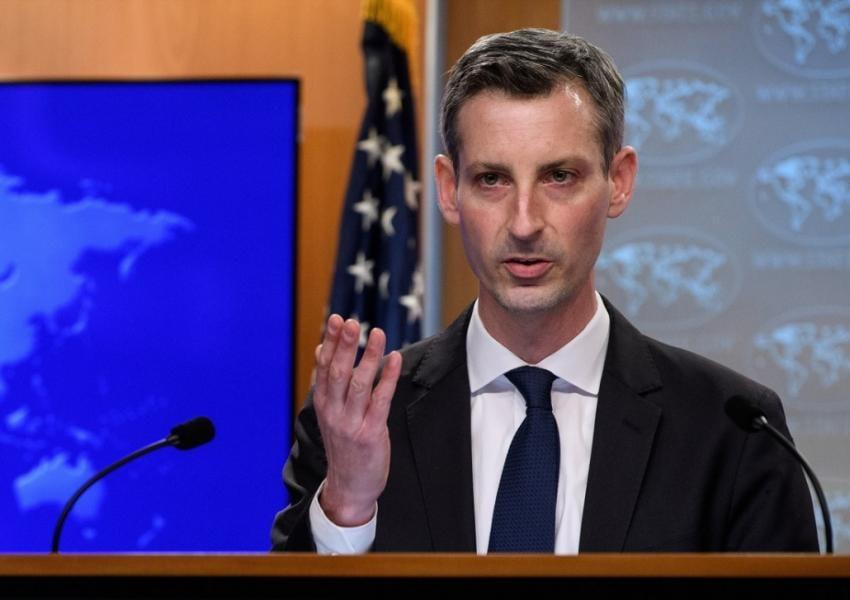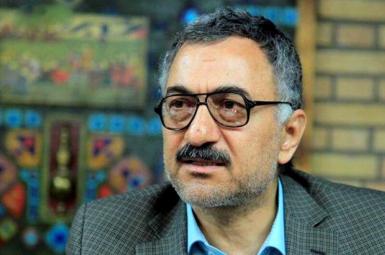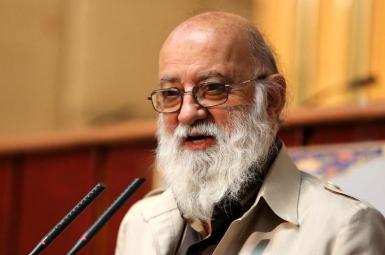
Biden Administration Rejects UN Court Ruling Over Trump-Era Iran Sanctions
The US State Department has expressed regret at a ruling by the United Nations’ International Court of Justice (ICJ) that it has jurisdiction over a case brought by Iran against the United States for sanctions imposed in 2018.
“We are disappointed that the court did not accept our well-founded legal arguments that the case Iran brought is outside the court’s jurisdiction and the court should not hear it,” Ned Price, the newly appointed State Department spokesman, told reporters during his briefing on Wednesday [February 3].
Price’s remarks come with the new administration of President Joe Biden weighing up options for Iran policy – and with new envoy Robert Malley drawing in advisers with differing viewpoints as analysts assess what continuity and breaks there may be from the presidency of Donald Trump.
Biden has expressed an intention to return to 2015 nuclear agreement between Iran and world powers, known as the JCPOA (Joint Comprehensive Plan of Action), which Trump abandoned in 2018 before imposing draconian sanctions centered on Iran’s banking sector and oil exports.
In response to Trump’s sanctions, Iran took the US to the ICJ, also known as the World Court, on the grounds that the US was violating a 1955 Treaty of Amity agreed by the pro-Western monarch Mohammad Reza Shah and President Dwight Eisenhower. The treaty had been registered with the United Nations and had somehow remained untouched despite 38 years − after the 1979 Revolution − in which Washington and Tehran had no diplomatic ties and a generally tense relationship.
In October 2018, the ICJ made a preliminary ruling that the US should “lift sanctions linked to humanitarian goods and civil aviation imposed against Iran.” Washington had always insisted that humanitarian trade is not sanctioned – US critics argue it is indirectly affected – and in October 2018, following the ruling the US formally annulled the 1955 treaty. Washington has also argued that sanctions do not breach bilateral obligations between the states, which would fall within court’s jurisdiction, but are a question of US national security.
Over two years later, the court has now rejected, said its president Abdulqawi Ahmed Yusuf, “the preliminary objections to its jurisdiction raised by the United States of America according to which the subject matter of the dispute does not relate to the interpretation or application of the Treaty of Amity.”
Given the speed at which the ICJ works, weighing the actual merits of the case and reaching a substantive decision, could take years. Even so, Iranian President Hassan Rouhani claimed victory as despite “America having hundreds of thousands of experts, we won with a handful of diplomats.” Foreign Minister Mohammad Javad Zarif noted that “Iran has always fully respected international law” and that it was “high time for the US to live up to its international obligations.”
State Department spokesman Price pointed out the judgment was “a preliminary ruling, not a decision on the merits.” And that in the “next phase of the case, we’ll explain why Iran’s claim has no merits.”
And in words that will be noted by all assessing the Biden administration’s likely direction over Iran, Price added: “We remain clear-eyed about the dangers posed by Iran’s malign activities.”








